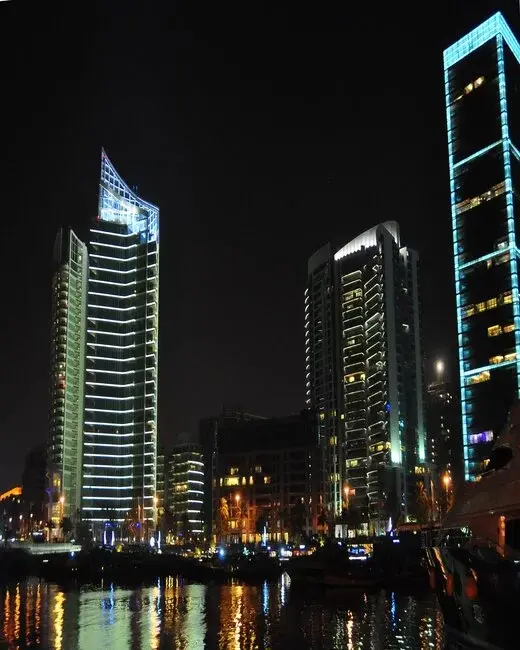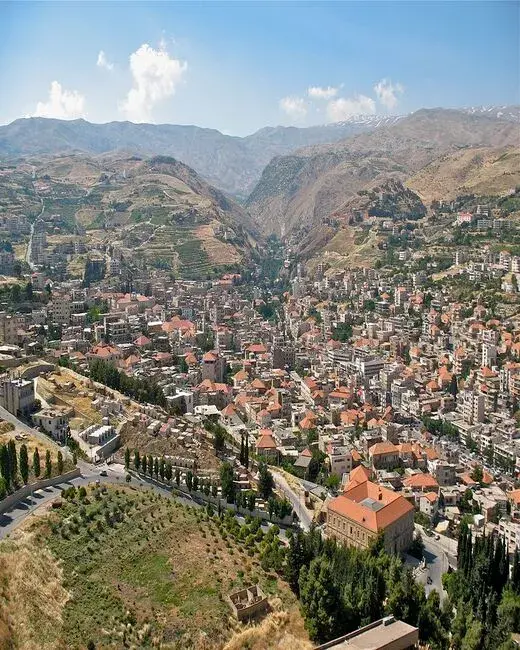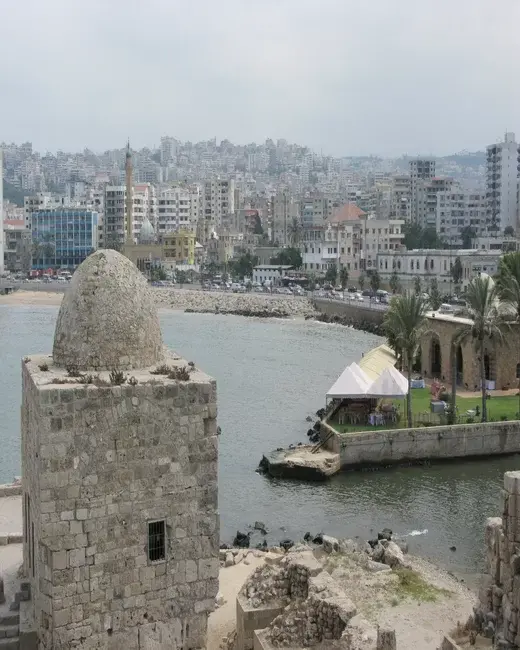Moving To Lebanon From Bahrain
You may easily moving to Lebanon from Bahrain with our dependable international moving services. Begin your relocation to Lebanon by requesting a free moving quote.
Comprehensive Guide for Moving to Lebanon
Are you intending to move to Lebanon? Lebanon is a small sovereign territory in Asia bordered by Syria, Israel, and the stunning Mediterranean Sea. Beirut, Lebanon’s capital, is a creative hotspot with much to always offer. Lebanon’s diverse terrain, culture, language, religions, and ethnic groups provide a one-of-a-kind experience, making it an excellent alternative for those looking to relocate.
Relocating to Lebanon is a significant decision, and it is our responsibility to help you make this important decision in your life. In this thorough guide on Relocating to Lebanon, we will give you with all of the necessary information and stages for your move to Lebanon. We will provide information regarding the documentation procedure, visa requirements, cost of living, employment, and education in Lebanon.
Contact ISS Relocations, one of Lebanon’s leading moving companies, today to receive individual advice and mentorship. We hope that this guide will answer all of your questions about relocating and make the process easier for you.
Benefits of Relocation to Lebanon:
- High-level Education
- Beautiful Nature
- Economical cost of living
- Easy Accommodation
- Adequate Medical Facilities
- Diversity of culture
How To Move To Lebanon?
When moving to Lebanon, there are a few things to keep in mind. ISS Relocations, Lebanon’s premier moving company, can offer you with a personalized consultation and 24-hour support. Our skilled consultants will give you with moving choices depending on the information below:
- Moving Schedule: When will you need to be in Lebanon?
- Real estate Plan: Will you buy or rent a home?
- Family Size: Will you be going to Lebanon alone or with family? How many people are in your family?
- Cubic feet estimate: What is the approximate size of your shipment?
Our analysts will use this information to help you evaluate the overall approximate cost of moving to Lebanon. ISS Relocations, a moving company in Lebanon, will make your move to Lebanon as smooth as possible by providing first-rate services and resources for all of your needs.




Visa Requirements To Move To Lebanon
People wishing to relocate to Lebanon will need a Lebanon Visa to enter the country. You are also responsible for organizing the essential documentation.
- Tourist Visa
Most tourist visas are valid for one month and accessible upon arriving in Lebanon. However, you can extend your visa for up to two months. For an extension, you must apply at the General Security in Lebanon. - Collective Visa
A Collective Visa is used by a group of eight or more people. The travel firm planning the trip to Lebanon will finish the Visa Application Process. - Residency Visa
A Residency Visa is a long-term visa. It is used by students, persons who have been married to a Lebanese citizen for more than a year, people with work permits, or people who are ready to spend a considerable sum to obtain a temporary visa (valid for one year) and a permanent visa. - Work Visa
A Work Visa is also called a Work Permit. You will require an employer who can authorize your work visa and obtain pre-approval from the Immigration Division of the Ministry of Labor in Lebanon. After granting a work visa, you may apply for a residency visa. - Student Visa
Students at Lebanon University can apply for a one-year student visa. Your university will provide a registration statement to obtain a student visa.
When you apply for a Lebanon Visa, the following documents are required to complete the process:
- Visa Application Form. You can get this form from your embassy website. The application form should be complete and signed.
- A Valid Passport. Your passport should be valid for the following six months. It should not contain any Israeli stamps, visas, or seals.
- A copy of your Passport.
- The Original Bill of Lading / Air Waybill.
- Residence Permit. It is issued by Lebanon’s General Security Office.
- Two current passport-sized photos.
- A Detailed Packing List. It is notarized by the Lebanese Embassy at the origin.
- Bank Account statement for the last three months.
- Proof of accommodation in Lebanon.
- Employment contract with the Lebanese company.
- Moving Certificate
- Additional Documents for Lebanon Student Visa: Letter of Admission to the Lebanese University and Proof of Funds Statement to Cover University Costs.
- Additional Documents for Lebanon Work Visa: A pre-approval letter from the Ministry of Labor, as well as any other documentation required for the type of work.
Lebanon Visas are issued under these two validities:
- Lebanon Visa on Arrival: This visa is valid for one month but can be extended for up to three months.
- Lebanon Embassy Visa: This visa is valid for either 15 days, one month, three months, or six months from the day you enter Lebanon.
Applying for Visa on Arrival
If you are a resident of a nation eligible for a Lebanon Visa on Arrival, you can obtain your visa at Beirut Airport. The following documents are required:
- A valid phone number
- Proof of the accommodation in Lebanon
- A return flight ticket
- Your passport does not have Israeli stamps, visas, or seals.
Applying for a Visa at the Embassy
If you are not a resident of a country qualified for a Lebanon Visa on Arrival, you can obtain one at the nearest embassy or consulate.
- Contact your local Embassy or visit their website.
- Collect the necessary paperwork to be completed.
- Submit the materials and application cost.
| Type of Visa | Visa Fee |
|---|---|
| Single entry Visa | 50.000 LP (about 35 USD) |
| Double Entry Visa | 75.000 LP (about 50 USD) |
| Multiple Entry Visa | 150.000 LP (about 70 USD) |
| Work Visa | 50.000 LP (about 35 USD) |
| Transit | 25.000 LP (about 17 USD) |
Cost Of Moving To Lebanon
The cost of migrating to Lebanon will vary depending on the individual’s needs and desires. What one person considers a luxury may be a need for another. As a result, accurately estimating the cost of living becomes challenging. However, below is a rough breakdown of the costs to assist you assess your expenses.
The average cost of migrating to Lebanon ranges from $2,000 to $12,000. This cost is determined by several elements, including the size of the move, application processing fees, total distance, route, settlement monies, mode of transportation, current market trends, legal expenses, packing and unpacking, shipping and handling, and moving insurance rates.
Housing In Lebanon
The cost of housing in Lebanon may appear to be higher than in other Middle Eastern cities. The average price of renting an apartment in Lebanon is $865. The cost varies based on location, size, and quality. Furthermore, renting in or near the city is more expensive than renting in rural areas and villages.
Choosing the finest housing option from among the many available depends on a number of criteria. These variables may include your ideal location, budget, preferred style of lodging, required facilities and amenities, storage in Lebanon, and transit accessibility. Because of the scarcity of public transportation options in Lebanon, transportation costs are high. Using personal vehicles raises the expense of living.
ISS Relocations is a moving business in Lebanon that can assist you with your housing wants and requirements. Contact us with any questions.
| Housing type | Average Cost (in USD) |
|---|---|
| Renting Apartment (1 bedroom) in City Center | $836.56 |
| Renting Apartment (1 bedroom) Outside of Center | $450.49 |
| Renting Apartment (3 bedrooms) in City Center | $1898.94 |
| Renting Apartment (3 bedrooms) Outside of Centre | $841.62 |
| Price per Square Meter to Buy Apartment in City Centre | $3,042.50 |
| Price per Square Meter to Buy Apartment Outside of Centre | $1,557.61 |
| Internet Connection at home (Unlimited Data, Cable/ADSL) | $45.10 |
| Basic facilities for housing (Water, Electricity, Garbage, Heating, Cooling) | $137.81 |
HealthCare System In Lebanon
When you decide to relocate to Lebanon, you must first analyze the country’s healthcare system. According to the World Health Organization, Lebanon has the world’s 91st best healthcare system. Lebanon has reasonably good healthcare facilities.
Lebanon’s healthcare system is dominated by the private sector, which operates 134 private and 28 state hospitals. Lebanon has around 950 primary health care institutions and dispensaries spread across the country’s six governorates. Non-governmental organizations (NGOs) own and operate about two-thirds of these.
The doctors and nurses at these hospitals are well-trained. There is also a government-funded health care system known as the National Social Security Fund (NSSF). It offers insurance funding for medical procedures. To deliver effective healthcare solutions, private hospitals have invested in modern medical technology such as MRI machines, OECD medians, CT scanners, and other equipment.
Taxation In Lebanon
Lebanon employs a territorial taxation system and provides competitive income tax rates both regionally and internationally. This taxation scheme makes Lebanon’s business environment more appealing and competitive.
- Taxation of Personal Income
According to the territorial taxation idea, salary taxes are only required in the following situations:
- The recipient of the pay is a resident of Lebanon, regardless of the source of the funds.
- Regardless of the funding source, income-generating activities are performed on Lebanese territory or contribute to the well-being of a corporation based in Lebanon.
- The fund’s source is in Lebanon, regardless of where the beneficiary lives or where the work was created.
Personal Income Tax in Lebanon is levied on wages and salaries at a progressive rate ranging from 2% to 25%. When it comes to retirement pensions and other benefits, these rates are cut in half.
- Taxation of Corporate Income
The Lebanon Corporate Income Tax policy imposes taxes based on the type of income. Here, corporation tax is separated into three categories:
Chapter I: Profits from industrial, commercial, and non-commercial professions are subject to taxation.
Chapter II: Income from salaries, wages, and pensions is subject to taxation.
Chapter III: Revenues from moveable capital are subject to tax.
The various corporate tax rates are:
- 17% Corporate Income Tax Rate
- 15% Capital Gains on Fixed Assets Disposal
- 10% Dividend Distribution on Withholding Tax
- 7.5% Non-Resident Withholding Tax on services and 2.25% on goods
- 2% to 25% Payroll Tax
Education In Lebanon
Lebanon has one of the world’s highest youth literacy rates, at 99.09%. Lebanon has three major and compulsory periods of education: primary, middle, and secondary. Students with technical baccalaureates can then continue their education at technical or vocational institutes. It then transitions to Tertiary Education, in which students attend universities, university colleges, and university institutes.
Every public school and university in Lebanon is free of charge. The education system is well-developed and accessible to the entire community. They use innovative teaching frameworks and use highly skilled and trained teachers to provide quality education.
Work Market In Lebanon
NGOs and diplomatic arenas in Lebanon offer the best work opportunities for foreigners worldwide. Construction, architecture, engineering, and tourism are the most common industries for expats to work in.
Lebanon also has labor laws in place to protect the rights of its employees and workers.
Most Desirous Cities To Live In Lebanon
Beirut: Beirut is Lebanon’s capital and largest city, located on the Mediterranean coast. It is the primary destination for visitors interested in Lebanon’s culture, business, tourist attractions, educational institutions, and industrial hubs. This location is ideal for renting properties for persons relocating to Lebanon.
Jounieh: Jounieh is part of Mount Lebanon and is located in Beirut’s Keserwan District. This location has historical significance and offers stunning picturesque vistas. It hosts the Jounieh International Festival and offers a variety of adventure activities for those who want an active lifestyle.
Zahle: Zahle is Lebanon’s third largest city and known for its pleasant weather. It is well-known for its numerous historical attractions, which attract tourists from all over the world.
Sidon: SSidon ranks in the bottom 35% of the world’s least expensive cities, with an average cost of living of $806. The after-tax wage is $700, which is adequate to meet living expenses for several months. All of this adds up to Lebanon being the second best city to live in Lebanon.
If you are still unsure about relocating to Lebanon or have any other questions and need direction, ISS Relocations is ready to help. Contact our consultants immediately to get all of your concerns answered and receive one-on-one guidance with all of the prerequisites for moving to Lebanon.






Have Any Questions?
What relocation services does ISS offer in Lebanon?
Can ISS assist with visa processes for moving to Lebanon?
How can I track the progress of my relocation with ISS in Lebanon?
Are my belongings insured during the move with ISS in Lebanon?
What sets ISS apart from other relocation companies in Lebanon?







